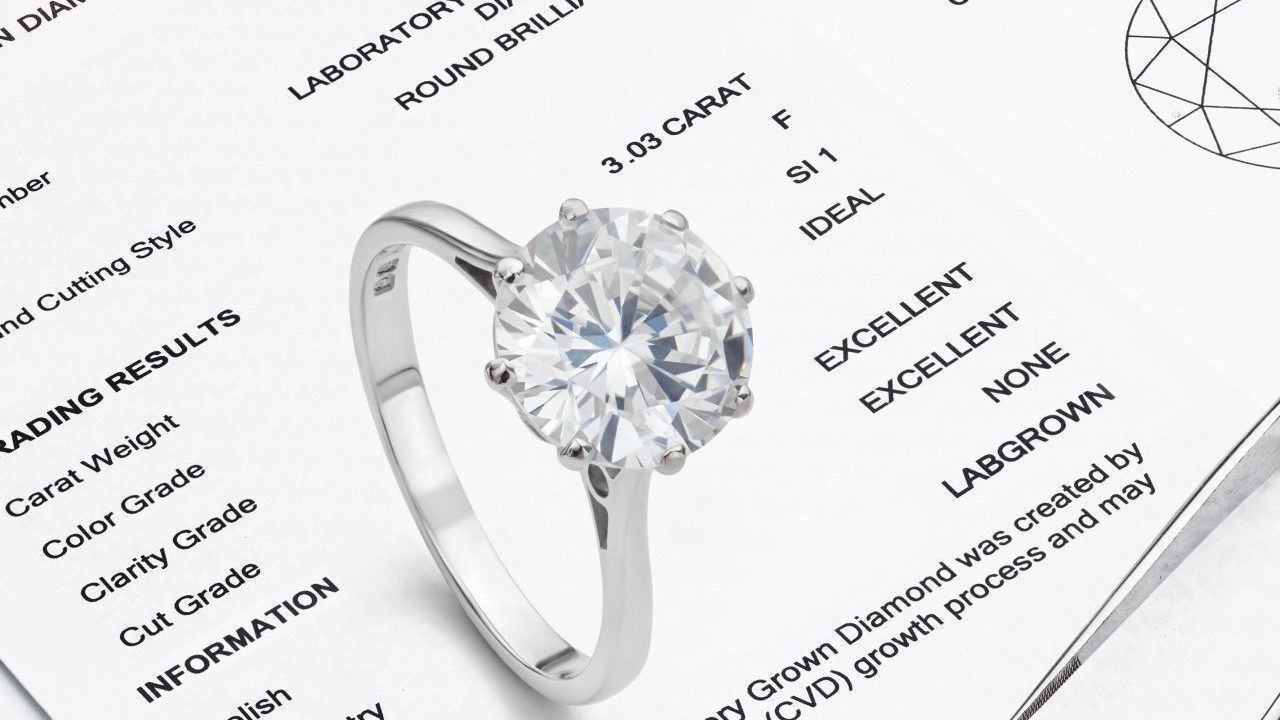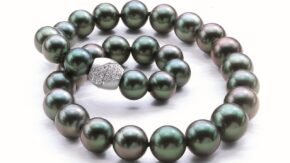Some jewelers are keeping their synthetics sales low-key to avoid pushback from the trade.
Lab-grown diamonds have been steadily gathering steam throughout the industry in the past five years. A 2021 survey from wedding website The Knot found that nearly one-quarter of all engagement-ring purchases that year featured a man-made stone, up 11% from 2019.
Some independent jewelers who spoke to Rapaport News during the recent Christmas season estimated that synthetics comprised more than half of their bridal sales. However, many in the industry still shy away from stocking them — or from saying they do. Many carry them only because they are strong moneymakers, but they don’t feel comfortable about it. The question is, are lab-grown diamonds still taboo in the natural-diamond industry?
Hidden gems
Two of the jewelers Rapaport News interviewed refused to discuss carrying lab-grown on the record. They both said they kept their synthetics out of sight and brought them out when customers asked.
“There’s just a lot of people in the industry, including my diamond dealers, who really look down at the idea of selling lab-grown,” says a Maryland-based jeweler who prefers not to be named. “I don’t even want some of my diamond dealers to know I sell them. Some of them are really very, very upset about the lab-grown industry and think that it’s a sham…. I only do it because I’m selling what people want. But I keep them hidden until someone asks.”
A jeweler in Idaho also carries synthetics on the sly. He prefers customers don’t know he stocks them unless they specifically request the product. He also worries about the reaction from fellow jewelers, noting they can be quite judgmental, and he doesn’t want to suffer any repercussions for trying to make a living.
Maria Buduo, owner of Maria’s Fine Jewelry in Worcester, Massachusetts, says that while she doesn’t fear pushback from others in the industry, it took her a while to start offering lab-grown.
“I had a hard time wrapping my head around lab-grown,” she notes. “But it’s what the customer wants. I’m not going to let them leave. So, if that’s what they want, that’s what we’re going to carry.”
From the source’s mouth
The reasons some jewelers hesitate to sell synthetics vary. Some fear judgment from fellow jewelers, others from dealers.
“I don’t have the conversation with my [natural-diamond] supplier about also carrying lab-grown,” notes Leslie Sandler, owner of Leslie E. Sandler Fine Jewelry in Rockville, Maryland, noting she had been made to feel uncomfortable about synthetics in the past. “We have to maintain a relationship with our suppliers, and you’ve got to be sensitive to that.”

Mark Clodius, owner of Clodius & Co. Jewelers in Rockford, Illinois, agrees.
“We get calls from diamond wholesalers all the time, asking how come we never order anymore,” he says. “When I tell them we’re buying less natural for stock and doing more with [lab-grown], they say, ‘You shouldn’t sell labs.’ I had somebody berate me, saying what we were doing was not good for the trade.”
Clodius also shares the story of a friend and his son visiting from California. The son had been looking at diamond engagement rings to propose to his girlfriend. He visited a jeweler in San Francisco who was “extremely adamant [about] not selling labs, and pushed him so hard to go natural that he felt uncomfortable about the situation,” he says.
Another source of the resistance, according to the two under-the-radar lab-grown sellers, is the influential 26,000-member Facebook group Jewelers Helping Jewelers (JHJ). The page banned synthetics sales in 2019, and while discussions of the category are allowed, the topic frequently draws a negative reaction.
“On my network, I don’t have any rules, except one: You can’t sell lab-grown,” says Aleah Arundale, who runs JHJ. “You can talk about them all you want, you can say they are the best thing in the whole world, but you can’t sell them.”
However, the repercussions for speaking about synthetics can be difficult for jewelers. The Idaho-based jeweler cites as an example a jeweler friend who posted about his foray into lab-grown only to face a written lashing from the crowd. He didn’t post again for several weeks.
“I see it on [JHJ] all the time,” Sandler explains, saying the group members “go crazy” when someone posts about synthetics.
Joanna Park-Tonks, president of the International Grown Diamond Association (IGDA), doesn’t think it’s possible to change the minds of those who are opposed to lab-grown, and nor does she want to try.
“The people who don’t like lab-grown diamonds, that’s a big and systemic hurdle,” she says. “I think those people are entrenched in that opinion, and that’s a difficult game to win, whatever business you are in.”
Ongoing fight
“My job is to look out for the trade for the long run,” Arundale states, acknowledging she feels no remorse if her Facebook group harms the lab-grown industry. “The whole point of a [natural] diamond is that it’s something valuable, something that shows commitment, that says, ‘I love you.’ So, if you are starting your relationship with something that isn’t valuable, that’s dropping in value, soon we will have no industry left. I just don’t want people running to [lab-grown] before they even give real diamonds a chance.”
Arundale is happy that “we can still keep some sort of stigma out there about [the category]. I just feel like there needs to be a couple more voices standing up for natural diamonds.”
Although the concern of lab-grown taking away business from natural is legitimate — a fact both sides recognize — some of the infighting has become a tit-for-tat situation, with both sides taking digs at the other to make themselves more appealing.
“They started it,” Arundale points out, half joking. “They said lab-grown was green, and natural wasn’t. They brought up blood diamonds.”
On a more serious note, the JHJ creator believes both the natural- and synthetic-diamond communities need to lay down their swords.
Park-Tonks concurs.
“This is somewhat…an age-old discussion, and I think the dialog has moved on,” the IGDA president says. “I think we’re moving to a peaceful coexistence, and the way that we achieve that is for each side to be mutually respectful and not denigrate the other.”
Accepting reality
“I think over time, this perceived pushback will become less and less,” stresses Park-Tonks. “Because larger companies are paving the way…and whether you love them or hate them, laboratory-grown diamonds are here to stay.”
However, for today, those battle lines remain, and for many jewelers, carrying lab-grown doesn’t denote acceptance.
Sandler was initially against selling lab-grown, she says, noting she doesn’t keep them in stock and orders them on memo only when she needs them. “Then I realized these people were going to buy it from someone else, so they might as well buy it from me,” she concedes. “I didn’t want to carry them, but I was losing sales. However, it’s not like I love them so much. I wouldn’t sell them to my son.”
Image: A lab-grown diamond ring. (Shutterstock)



